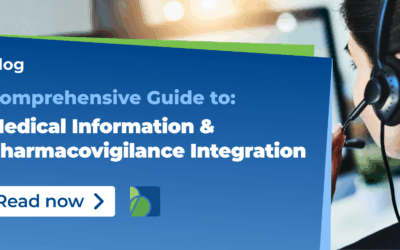Despite the fact that Ukraine is the largest country in Eastern Europe with a large population of treatment-naïve patients, well organized public health care sector and significant number of medical sites accredited for clinical trial conduction (more than 800 registered sites in 2017), country has utilized only 15% of its current potential for hosting clinical trials.
During 2017, the European Medicine Agency (EMA) gave positive recommendations on 94 new drug applications and 49 of them were tested in clinical trials in Ukraine. During the same year, the US FDA approved 151 new drugs, and 28 of them were also studied in Ukraine. According to the European Business Associated in Ukraine, these impressive numbers are only those 15% of current country potential.
In this article, I will try to identify the main points why Ukraine is attractive to Sponsors and to review clinical trial approval and conduction processes in a detailed and practical manner.
Clinical Trial Approval and Conduction in Ukraine
Clinical Trial legislation in Ukraine is harmonized with the respective EU Directives, Guidelines, Bylaws and considered to be developed and favourable for their conduct. Moreover, compliance with the Declaration of Helsinki and the ICH (the International Conference on Harmonization) is required by law, making it a guarantee for the quality of clinical trials.
To make the country even more attractive for clinical research the Ukrainian Government represented by the Ministry of Health of Ukraine (MoH) and its expert division – the State Expert Centre (SEC) – has implemented several important measures:
- The regulatory approval of the clinical trial is granted by the Ministry of Health of Ukraine (to be precise – State Expert Centre (referred to as SEC) of the Ministry of Healthcare of Ukraine);
- Approval of the clinical trial at a certain healthcare institution should be obtained only from a Local Ethics Committee (referred to as LEC);
- There are no Central Ethics Committee or Institutional Review Board in Ukraine;
- Submissions to the Ministry of Health and Local Ethics Committees can be done in parallel.
Initial Regulatory Submission and Timelines in Ukraine
Statutory timelines for receiving the initial study regulatory approval are 47 calendar days. However, typical timelines for receiving the initial regulatory approval are 90 calendar days. The ethics review timelines depend on a Local Ethics Committee, and statutory LEC review timelines within 30 calendar days.
Initial regulatory submission proceeds in two stages:
- Submission of the application form to the Ministry of Health (should be forwarded to the SEC within 3 calendar days since informing SEC about new submission).
- Submission of the completed Clinical Trial Application dossier to the SEC:
- In case the dossier is considered incomplete, missing documents or information should be submitted within 30 days from the date when the application form has been received by the SEC from the Ministry of Health.
- If missing documents or information is not submitted, the SEC informs the applicant in writing that the dossier will not be reviewed, and the application should be re-submitted.
SEC and LEC Review Process in Ukraine
- During the study review process, the SEC or LECs can issue written observations and comments or request additional documents only once.
- In case of comments to the submission dossier, the applicant should submit the response or requested documents to the SEC within 60 calendar days and within 30 calendar days to a LEC.
- Submission of updated documents during the review period of the initial study application is possible both to the Regulatory Authority and the LECs.
- Submission of amended/additional documents/information/additional sites should be done as a substantial amendment.
- When issuing its initial study approvals, the subsequent submissions will be treated separately and reviewed no earlier than the issuance of the initial study approvals.
[ngg src=”galleries” ids=”21″ display=”basic_thumbnail” override_thumbnail_settings=”1″ thumbnail_width=”1200″ thumbnail_height=”1200″ thumbnail_crop=”0″]
Import and Export Requirements in Ukraine
Import and export permits are not required. The study regulatory approval includes the authorization to import IMPs, non-IMPs, and study materials (in case information on the study materials was submitted within the initial submission).
In case the list of the study materials is not submitted within the initial submission and this information is not included in the study regulatory approval, 20% of VAT, will be applied to shipments of those goods.
There is a possibility to reduce the VAT on study materials and import them with a 7% VAT. From the standpoint of the Ukrainian legislation/Ukrainian fiscal authorities, those study materials, which are listed in the study regulatory approval, will be applied with 7% VAT.
Contracting Process Description
Well defined contracting process in Ukraine is never the cause of delayed study start because all contracts are signed before the site initiation visits. The law defines three main types of contracts:
- Between the Sponsor (or CRO) and the hospital site;
- Between the Sponsor (or CRO) and responsible investigator;
- The tripartite contract between the sponsor (or CRO), the scientific/educational establishment (university/institute), and the hospital site.
Note that Individual contracts are a great benefit. But take in mind that usually, State hospitals/universities do not have international currency accounts and are paid ONLY in Ukrainian national currency.
In addition to clear and well-defined regulatory processes, Ukraine has a great enrollment potential, proven high quality of obtained data and optimized costs comparing to EU countries. Moreover, the country offers:
- High quality of data confirmed by numerous FDA/EMA audits;
- A large pool of highly motivated, experienced, and GCP-trained clinicians;
- A large pool of potential study subjects;
- Public healthcare system comprising over 2500 public healthcare facilities;
- International standards for medical care.
Also, MoH needs to be notified only in the following cases, in this way reducing your bureaucratic duties:
- The first patient consented in Ukraine (start of a clinical trial);
- End of a clinical trial (the last site closed);
- Periodical (annual) report;
- SUSAR/DSUR;
- Clinical Trial Report.
To summarize, Ukraine in the clinical research industry today has everything all stakeholders could want, and it’s not only an empty words’ because the numbers from EMA and US FDA highlight the growing studies, and legislation in the country ensure the quality of clinical trials conduction.
If you want to get more information about clinical trials in Ukraine, contact us!
Oleg Kungurtsev, MD
Manager Clinical Operations, Country Manager Ukraine
Biomapas









